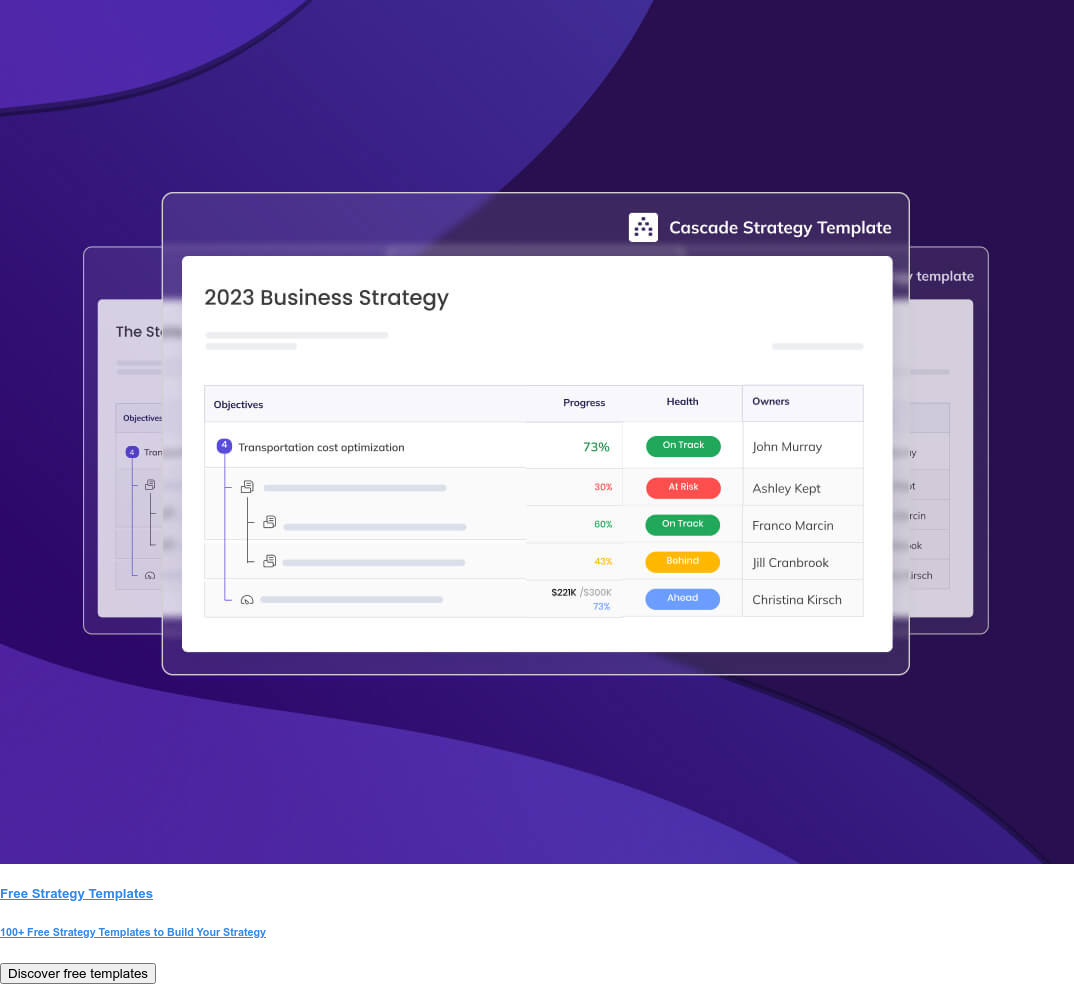How to Help People be More Strategic
Before we get started, I want to let you in on a little secret. Your people already are strategic. Every single one of them. They assess, they analyze, they decide, they revise, they iterate and they evolve.
The key elements needed to help people be more strategic are already present in each of them. Some apply it more than others - some apply it more to their private lives than their professional lives. Some may even be better at it than others...
This article isn't going to be about trying to influence people's skill sets or personality traits - it's going to be about helping you to unlock the skills they already possess and apply them more frequently and more positively to the work which they do.
The steps below are absolutely in order of priority. Here goes...
1. Respect Them
It may seem obvious, but one of the most common mistakes we see leaders making is thinking of their people as resources, defined by their CVs, qualifications, or experience. Do this and you risk grossly underestimating their potential.
The number one, simplest, and most effective way to help people be more strategic in their work, is to empower them with knowledge and to not just participate in, but lead change.
How you do this will be different depending on your organization. For startups, it might mean giving full transparency over cash flows and profit/loss.
For corporations, it might be about including the whole team in senior-level meetings. At the very least, in your team meetings, you need to be sharing your own thoughts and ideas in their early stages of maturity.
Don't sit down and present final solutions - present challenges, threats, opportunities (and maybe a few ideas too) - and give people time to digest and use their own initiative to come up with solutions.
A big step would be to give your whole team direct and equal access to your organization's strategic plan. This was actually one of the main reasons that we created our cloud platform Cascade - as a tangible way of delivering against this level of empowerment.
A confronting thought on this topic: don't be afraid of being outshone by your team! Pride, or worse, insecurity are the enemy of true empowerment and respect.
I would wager that even the best leaders have at some stage been guilty of one of these things - it's human nature to be protective - and workplace cultures are in so many cases pervaded by defensiveness and a lack of transparency.
Ask yourself very honestly 'Am I OK with the fact that my team may well know how to run this business better than me?' Because here's the thing, collectively, they should. Otherwise, you hired the wrong people.
2. Provide a Structure
Empowerment and respect are not the same things as being unstructured. You need to provide a structure and a framework to help get strategic output flowing in a way that is constructive and useful. There are a few key elements here:
Your team need to understand the key business challenges, risks and opportunities that face the organization. You can tell them easily enough, but the real skill is in helping them to relate these things to their work.
Another key aspect to help people be more strategic, is time. Everyone's busy making sure things don't fall down - so carving out dedicated, 'named' time to talk about strategy without worrying about the business-as-usual pressures is a must.
Try arranging a weekly session with your team outside of the office (maybe a coffee shop) with a loose agenda (anything too strict will constrain creativity) ideally starting off with some transparent and unfiltered updates from yourself about how things are going.
3. Leave the Room
We all know that micro-managing is bad - but we often associate it with more operational, low-level activities. It's just as easy to find yourself, however, micro-managing your team's strategic output.
Have you ever found yourself sitting in a meeting with your team, trying to ask 'probing' questions to try to elicit some strategic thinking? Things like 'What do you think we could do about that, Susan?'. 'If you were me, how would you approach this problem?".
These probing questions may work well in interviews - but they are NOT conducive to helping your team to think and act truly strategically. They may well respond to the questions, and you may even gain some valuable input - but the moment you stop probing, it will all dry up.
Even worse, you risk simply eliciting the answers that you have already thought of yourself - which is of no use whatsoever!
Instead, you need to truly step away and let your people work together without your guidance or input. Whether it's for an hour, a day or a week - the best and most innovative ideas your team will ever give you are the ones they come up with by themselves when you're not there.
4. Reward Them
It may seem obvious, but you need to create tangible links between inputs and successful outcomes. It doesn't necessarily have to be monetary (though there's nothing wrong with collectively rewarding a team for a well-executed strategic initiative). It could be as simple as a dinner or a genuine thank-you in a team meeting.
Be careful about singling out individuals - if you've done a good job of creating a structure (2) then you'll find that the best ideas or executions were almost certainly achieved collectively.
When it comes to performance reviews and pay increases - be sure to reference their strategic inputs, and take the time to talk about how you could help them to do more in this space.
You'll find that almost everyone will be keen and willing to engage strategically - and sometimes making one or two tiny changes to the way in which you interact with them can be enough to draw this out. They themselves are in the best position to help you understand what those tiny changes are - so ask them!
5. Take Accountability for Failures
Sometimes, things just won't work out. What may have seemed like a great idea 2 weeks ago in the team meeting, may have just turned out to be too hard, too expensive, or perhaps even just a bad idea.
This is never the fault of your team, and most certainly never the fault of an individual. As a leader, you take ultimate accountability for decisions - including the less-than-stellar ones.
Nothing will decimate your team's willingness to engage strategically than the threat of recrimination (implied or actual) should their ideas not pan out. Frankly, you shouldn't even be thinking about things as failing or succeeding.
As cliched as it sounds - bad ideas can bring you just as much value as good ones, so long as you take the time to learn why they didn't work out, and make changes accordingly.
As always, we'd love to hear your thoughts on the subject, including any success stories you may have had in helping people be more strategic.



.avif)


.png)
.jpg)
.jpg)



